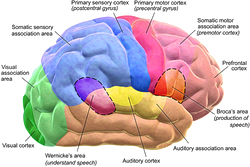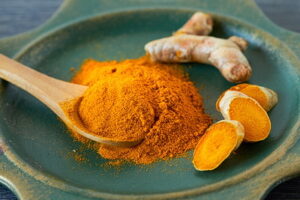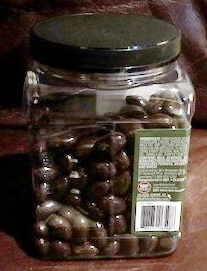
Before you cut into that big juicy T-bone steak, you should consider something: What we eat has an impact on how we think (cognitive processing) and use our memory, especially as we age.
Our brain is one of the most vital organs, responsible for day-to-day functions. It is in charge of ensuring that our heart keeps beating and our lungs keep breathing. That is why a healthy brain is essential for living a long, healthy life.
The foods we consume play a major role in regulating brain health, impacting mental tasks such as concentration and memory.
Listed below are some foods that are associated with keeping a brain healthy.
Blueberries
 Fruits such as blueberries are great antioxidant foods. Photo: Pexels Free
Fruits such as blueberries are great antioxidant foods. Photo: Pexels Free
In addition to providing numerous health benefits, blueberries are specifically good for the brain.
Anthocyanins are a group of plant compounds that contain antioxidant and anti-inflammatory effects. They are found in abundance in blueberries. Antioxidants deter brain aging and brain diseases such as dementia as they act against both inflammation and oxidative stress. Studies have shown that antioxidants in blueberries accumulate in the brain and improve communication by repairing neurons. Try blueberries for breakfast along with Greek yogurt. Add a few peanuts as well.
Fatty Fish
This category includes fish such as trout, salmon, and sardines which are great sources of omega-3 fatty acids. Approximately 60% of our brain is made up of fat and half of that fat is omega-3.
Omega-3 is used to build up nerve cells which are essential for memory and learning. It also has other health benefits as it helps in warding off Alzheimer’s disease by delaying age-related decline in cognition. On the other hand, not getting enough omega-3 is associated with depression and hampers learning.
Gray matter is a substance that controls emotion, memory, and decision-making. People who consume broiled or baked fish regularly tend to have more gray matter in their brains and that is no doubt a good thing.
Coffee

If drinking coffee in the morning is the norm for you, then you will be glad to know that it is good for your brain’s health.
The two main components in coffee that are beneficial are caffeine and antioxidants.
The benefits of caffeine are as follows:
-
- Increased alertness. Adenosine is a chemical messenger that is responsible for making you feel sleepy and caffeine helps to block it.
- Improved mood. Caffeine is associated with boosting the chemical serotonin which is responsible for making us feel good.
- Heightened concentration. A study conducted on assessing the benefits of coffee found that people who drank it in the morning or kept taking smaller servings throughout the day were more effective at tasks that require concentration.
Turmeric

This spice has garnered a lot of attention in recent times. Most commonly used in curries, this dark yellow spice carries numerous health benefits for the brain.
Curcumin is an ingredient that is found in turmeric and can directly access the brain to benefit the cells. Apart from antioxidant and anti-inflammatory properties, curcumin has the following advantages:
-
- Promotes the growth of new brain cells. It helps in boosting brain-derived neurons which is a growth hormone directly responsible for the growth of brain cells.
- Eases depression. Serotonin and dopamine which are responsible for making us feel good are boosted by curcumin. One study found that it alleviated depression symptoms in under six weeks, similar to the effects of antidepressants but without the drawbacks of pharmaceutical drugs.
To utilize the benefits of curcumin, start using curry powder or add turmeric to tea or potato dishes.
Dark Chocolate

Dark chocolate and cocoa powder contain elements that carry numerous benefits for the brain such as caffeine, antioxidants, and flavonoids (antioxidant plant compounds). The flavonoids in chocolate are particularly beneficial for memory and learning. These compounds are known to slow down age-related mental decline and also play a role in enhancing your memory.
In a study conducted to assess the benefits of dark chocolate, it was found that from a sample of 900 people, those who ate chocolate more frequently showed improved performance in several mental tests (some involving memory as well) as compared to those who consumed it sometimes.
Chocolate is also linked to boosting mood and is associated with positive feelings. Though for some people that is triggered because of the taste.
Nuts
Almonds, in particular, are linked to having a sharper memory and contain antioxidants and vitamin E. Vitamin E not only slows down mental decline but also shields cell membranes from damage. Walnuts are extremely beneficial as they are rich in omega-3 fatty acids.
Eating nuts has been linked not only to a healthy brain but also to improving cardiovascular health. Nuts boost your immune system to prevent neurodegenerative diseases as well as improve cognition.
The Bottom Line
You may not turn into an Einstein but eating the right brain foods can certainly help your concentration. Just as many foods can keep your brain healthy, some can hamper development and make you prone to mental diseases.
Steer clear of foods with saturated fats that are known to raise blood pressure and are associated with bad cholesterol. Processed meat, excess sugar, and other foods that contain trans fats such as junk food are bad for your brain.
You can help boost your memory and alertness by smartly (pun intended) including the above-mentioned foods in your diet, and it is always a good idea to get advice from your medical provider as well.
